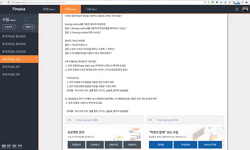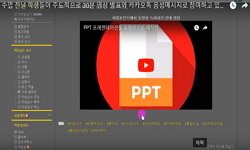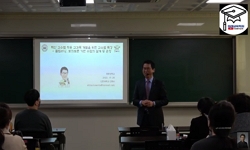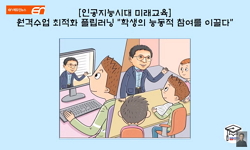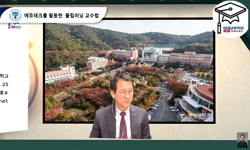Flipped learning is a new form of teaching-learning paradigm that developed based on teachers` fundamental question of “What form of teaching and learning strategy can help students experience a true learning?” As for social studies subjects, the ...
http://chineseinput.net/에서 pinyin(병음)방식으로 중국어를 변환할 수 있습니다.
변환된 중국어를 복사하여 사용하시면 됩니다.
- 中文 을 입력하시려면 zhongwen을 입력하시고 space를누르시면됩니다.
- 北京 을 입력하시려면 beijing을 입력하시고 space를 누르시면 됩니다.

플립러닝(Flipped Learning)을 활용한 사회과 교수·학습 방안 - 근로자의 권리와 노동권 침해 사례를 중심으로 - = Flipped Learning Model in Social Studies Education - Focused on laborer`s rights and the cases of labor rights violation -
한글로보기https://www.riss.kr/link?id=A104181992
- 저자
- 발행기관
- 학술지명
- 권호사항
-
발행연도
2017
-
작성언어
-
- 주제어
-
KDC
300
-
등재정보
KCI등재
-
자료형태
학술저널
-
수록면
103-128(26쪽)
-
KCI 피인용횟수
4
- DOI식별코드
- 제공처
-
0
상세조회 -
0
다운로드
부가정보
다국어 초록 (Multilingual Abstract)
Flipped learning is a new form of teaching-learning paradigm that developed based on teachers` fundamental question of “What form of teaching and learning strategy can help students experience a true learning?” As for social studies subjects, the content of the curriculum is vast, yet the number of assigned class units is rather small. In addition, a teacher-centered instruction, which has been prevalent among social studies subjects, has limitation for developing the capabilities of citizens who can adapt to rapidly changing future society. The present study aims to highlight the fact that flipped learning can be an alternative to overcome such limitation of teaching and learning social studies subjects. To this end, this study examined the significance of flipped learning in teaching and learning social studies subjects and searched for design strategies of teaching and learning that implements flipped learning. In particular, in order to directly apply flipped learning to teaching and learning of social studies, specific cases were developed by integrating the constructive class design with the ADDIE model. This study has a feature of preliminary study designed to apply flipped learning to social studies education. It is hoped that a follow-up study can conduct additional research on the effect or limitation of flipped learning in social studies subjects based on the findings of this study.
참고문헌 (Reference)
1 이동엽, "플립드 러닝(Flipped Learning)교수학습 설계모형 탐구" 11 (11): 83-92, 2013
2 Dewey, J., "아동과교육과정" 문음사 2002
3 Mertler, C. A., "실행연구: 학교개선과 교육자의 역량 강화" 창지사 2014
4 박상준, "사회과교육의 이해" 교육과학사 2016
5 Quinn, C. N., "모바일러닝 설계: 모바일 혁명을 통한 조직역량 개발" 시그마프레스 2014
6 최석민, "듀이의 성장원리와 교사" 26 (26): 103-122, 2005
7 Bergmann, J., "당신의 수업을 뒤집어라" 시공미디어 2013
8 장은주, "국어 수업에서 ‘거꾸로 교실’(Flipped Learning)적용 방안연구" 31 (31): 199-217, 2015
9 이성흠, "교육방법 및 교육공학 : 의사소통, 교수설계, 그리고 매체활용" 교육과학사 2013
10 김한중, "교수학습과 교육심리" 키메이커 2015
1 이동엽, "플립드 러닝(Flipped Learning)교수학습 설계모형 탐구" 11 (11): 83-92, 2013
2 Dewey, J., "아동과교육과정" 문음사 2002
3 Mertler, C. A., "실행연구: 학교개선과 교육자의 역량 강화" 창지사 2014
4 박상준, "사회과교육의 이해" 교육과학사 2016
5 Quinn, C. N., "모바일러닝 설계: 모바일 혁명을 통한 조직역량 개발" 시그마프레스 2014
6 최석민, "듀이의 성장원리와 교사" 26 (26): 103-122, 2005
7 Bergmann, J., "당신의 수업을 뒤집어라" 시공미디어 2013
8 장은주, "국어 수업에서 ‘거꾸로 교실’(Flipped Learning)적용 방안연구" 31 (31): 199-217, 2015
9 이성흠, "교육방법 및 교육공학 : 의사소통, 교수설계, 그리고 매체활용" 교육과학사 2013
10 김한중, "교수학습과 교육심리" 키메이커 2015
11 Richey, R., "교수설계 지식기반" 학지사 2012
12 Bergmann, J., "거꾸로교실: 진짜 배움으로 가는 길" 에듀니티 2015
13 박상준, "거꾸로 교실을 넘어 거꾸로 학습으로: 우리나라 교실에 맞는거꾸로 교실 모델을 찾아서" 교육과학사 2016
14 University of Texas at Austin Faculty Innovation Center, "What is differ ent about a flipped classroom?"
15 Bergmann, J., "The flipped class: Myths vs. Reality"
16 King, M. B., "Social studies today : research and practice" Routledge 53-64, 2010
17 Lage, M. J., "Inverting the Classroom : A Gateway to Creating an Inclusive Learning Environment" 31 (31): 30-43, 2000
18 Fleming, M. L., "Instructional message design :principles from the behavioral and cognitive sciences" Educational Technology Publications, Inc 1993
19 Bergmann, J., "Flipping for mastery" 71 (71): 24-29, 2013
20 Ozdamli, F., "Flipped classroom approach" 8 (8): 98-105, 2016
21 Flipped Learning Network, "Definition of Flipped Learning"
동일학술지(권/호) 다른 논문
-
`풍요 속의 빈곤` - 87년 헌법 개정 논의에 대한 비판적 고찰 -
- 한국법교육학회
- 홍익표 ( Hong Ick-pyo )
- 2017
- KCI등재
-
선순환의 창작생태계 구축을 위한 법교육과정의 분석과 개선방안 - 저작권 분야를 중심으로 -
- 한국법교육학회
- 이종원 ( Lee Jong-won )
- 2017
- KCI등재
-
- 한국법교육학회
- 이광성 ( Lee Kwang-sung )
- 2017
- KCI등재
-
중·고등학생의 학생 인권보장 인식에 영향을 주는 학교환경 분석
- 한국법교육학회
- 구정화 ( Koo Jeong-hwa )
- 2017
- KCI등재
분석정보
인용정보 인용지수 설명보기
학술지 이력
| 연월일 | 이력구분 | 이력상세 | 등재구분 |
|---|---|---|---|
| 2027 | 평가예정 | 재인증평가 신청대상 (재인증) | |
| 2021-01-01 | 평가 | 등재학술지 유지 (재인증) |  |
| 2018-01-01 | 평가 | 등재학술지 유지 (등재유지) |  |
| 2015-01-01 | 평가 | 등재학술지 선정 (계속평가) |  |
| 2013-01-01 | 평가 | 등재후보 1차 PASS (등재후보1차) |  |
| 2012-01-01 | 평가 | 등재후보학술지 유지 (기타) |  |
| 2011-01-01 | 평가 | 등재후보 1차 PASS (등재후보1차) |  |
| 2009-01-01 | 평가 | 등재후보학술지 선정 (신규평가) |  |
학술지 인용정보
| 기준연도 | WOS-KCI 통합IF(2년) | KCIF(2년) | KCIF(3년) |
|---|---|---|---|
| 2016 | 0.48 | 0.48 | 0.53 |
| KCIF(4년) | KCIF(5년) | 중심성지수(3년) | 즉시성지수 |
| 0.68 | 0.66 | 0.719 | 0.82 |




 KCI
KCI KISS
KISS